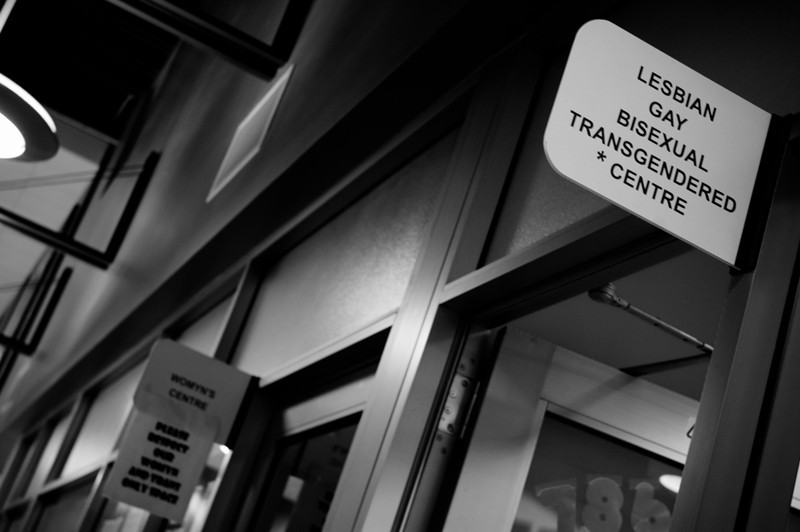A positive campus, both physically and mentally
New collaborative campaign aims to eliminate discrimination based on sexuality and gender
After a series of fits and starts over the past eight years, the Positive Space Campaign has finally found its roots at the University of Winnipeg.
The campaign, a collaboration between students, staff and faculty, aims to eliminate discrimination based on sexuality and gender by increasing visibility and support of lesbian, gay, bisexual, transgendered, transsexual, queer and intersexed people. The goal is to create a safer and more inclusive campus environment.
“Certainly we are talking about physical space [on campus],” said Zoe Gross, student co-ordinator of PSC. “But we are also talking about our imaginative space – our minds and making them positive.”
Similar campaigns, often called Safe Space, occur at several high schools and university campuses across North America.
Cherie Werhun, assistant professor of psychology and one of the faculty members involved in PSC, said the momentum the campaign is gaining shows issues of safety and equality are on people’s radars.
“The reality is that people are really starting to think about, in a more dramatic way, making spaces safer,” explained Werhun.“Through teaching courses related to discrimination ... the number of instances that students are able to talk about from their personal experience suggests that discrimination is happening on campus.”
There is no formal human rights office at U of W that keeps record of incidents of gender discrimination.
Werhun has studied the effects chronic stereotyping and discrimination have on cognitive and emotional well-being, and said discrimination can hinder academic achievement.
“Studies show that when students are faced with that extra burden they suffer in their cognition ... and score lower on tests,” she said.
Although the campaign is in its early stages, U of W counselor and campaign member Julie Tilsen wants to see the campaign become permanent on campus.
“[It is] important that there is institutional backing to make sure that it is still here tomorrow,” she said, adding that she hopes more students, staff and faculty will become involved. “It has got to survive beyond us.”
Gross said having faculty and staff involved in the campaign will help ensure its longevity.
“Students are here for a couple of years and then they leave,” she said. “Faculty and staff are ... here for a longer period of time.”
Published in Volume 64, Number 13 of The Uniter (November 26, 2009)







